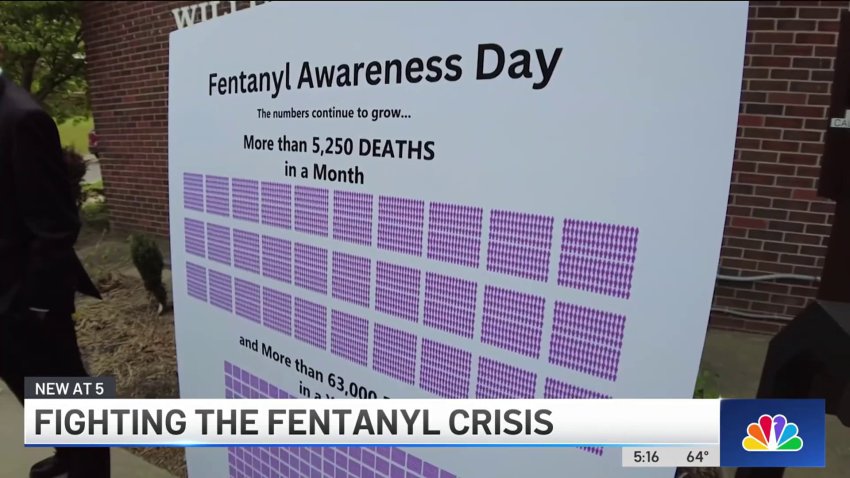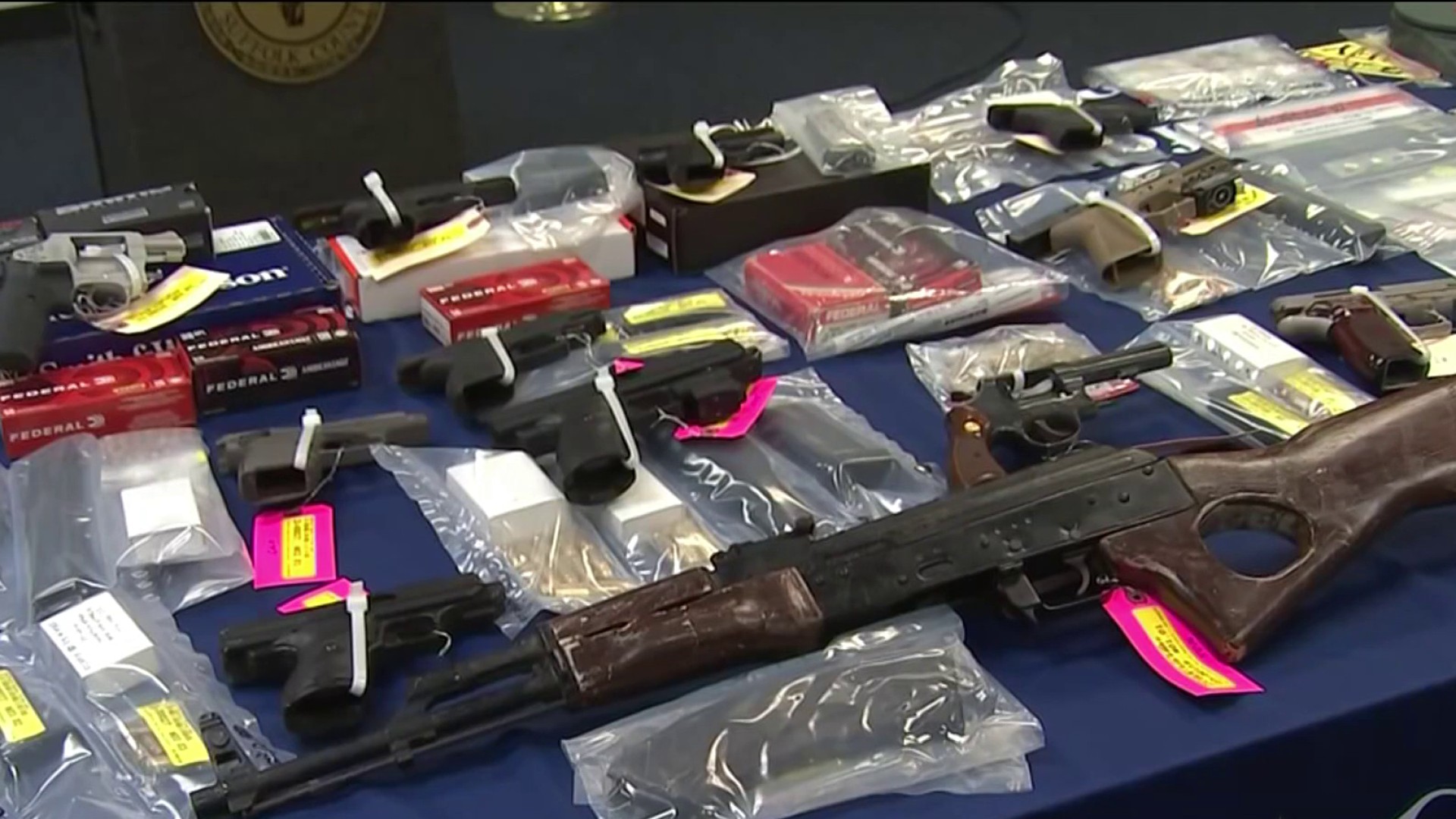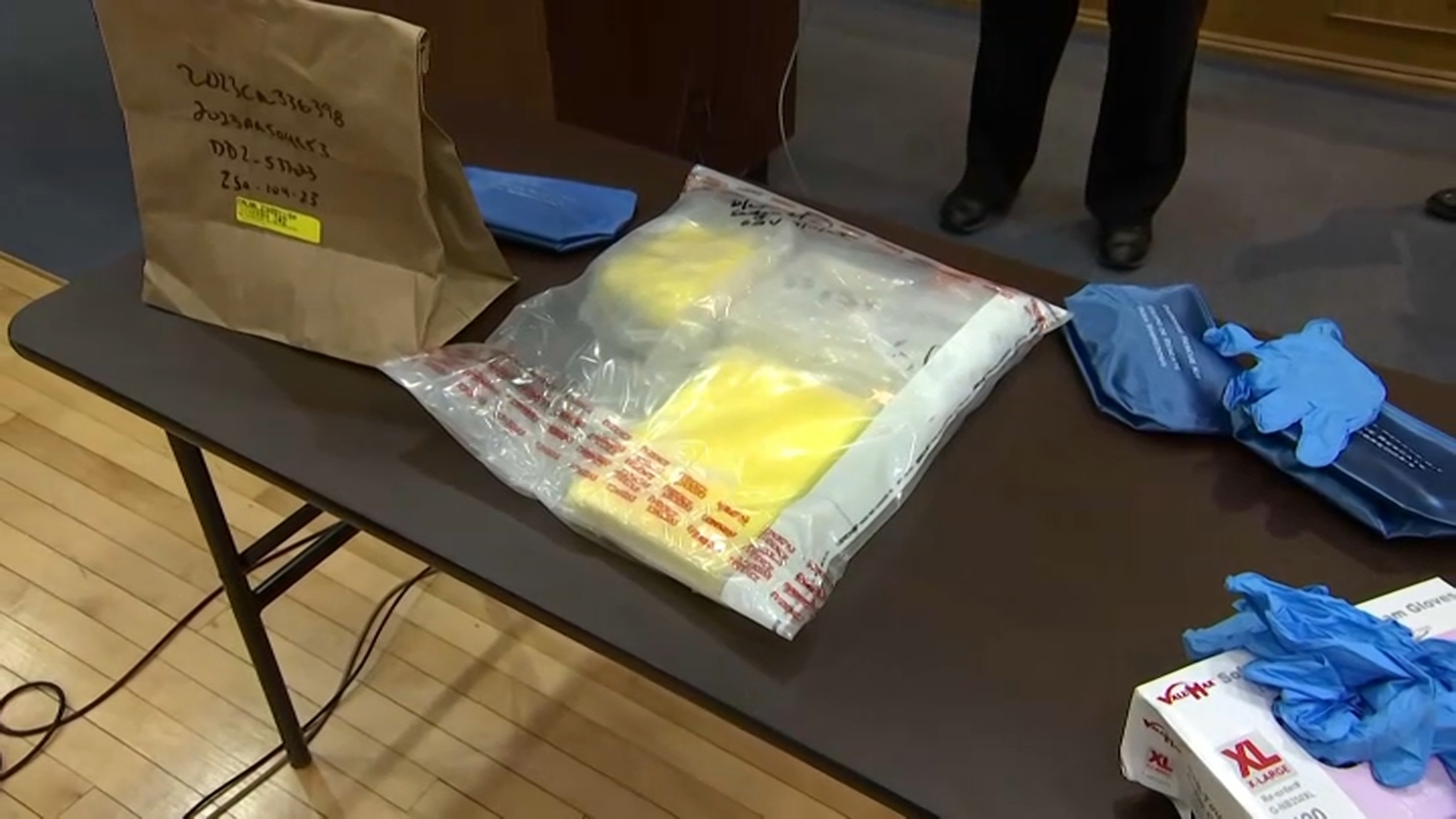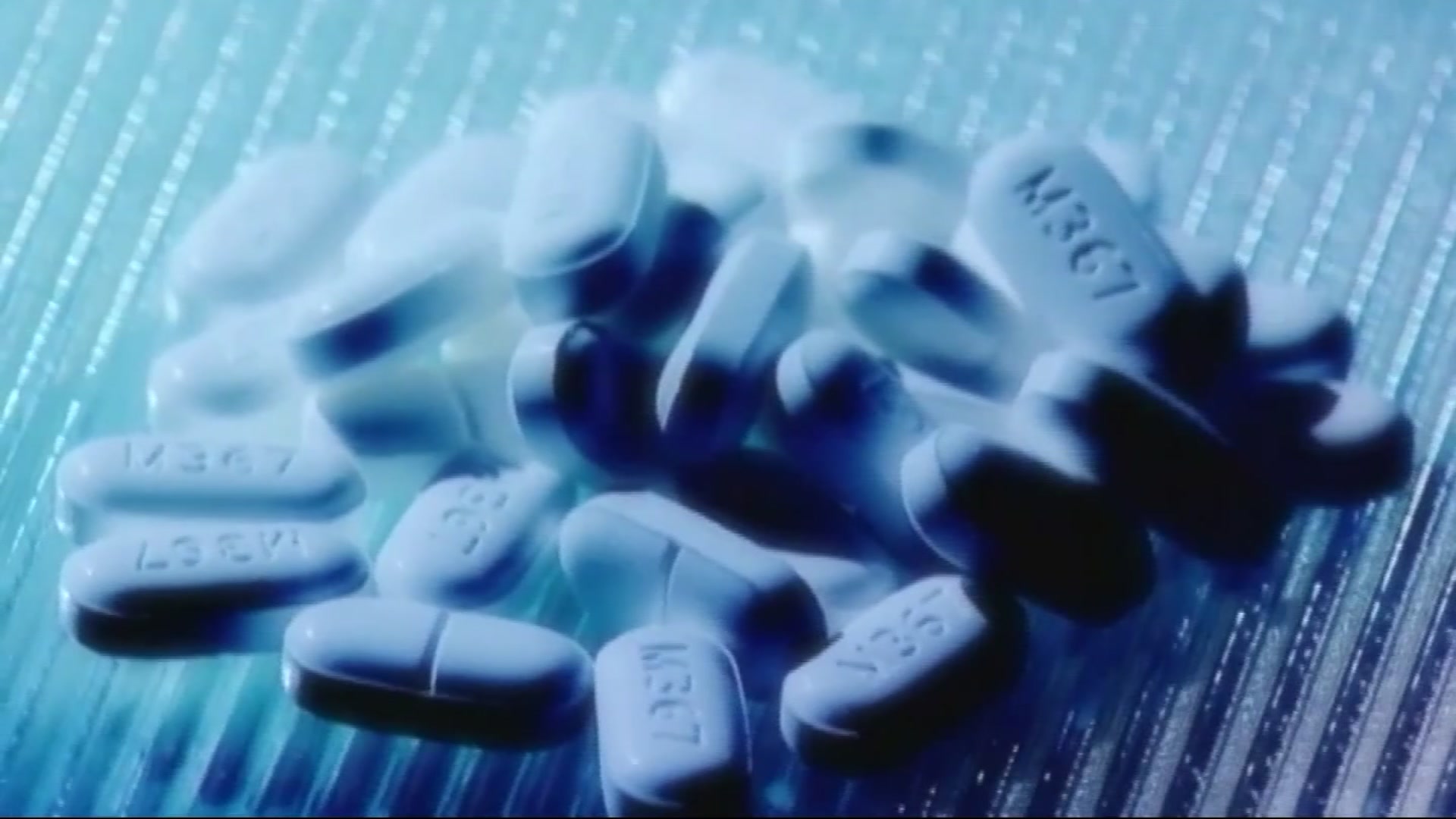A Westchester County mother is calling for her daughter’s drug dealer to be criminally charged in the teen’s fatal overdose, and adding that social media companies may to blame as well for giving dealers a market to push their poisonous pills. NBC New York’s Chris Glorioso reports.
Prior to the pandemic, the intensifying opioid crisis led the NYPD to assemble several “Overdose Squads.” The specialized units, are described on the police department’s website as groups of detectives who "investigate fatal and non-fatal overdoses and work with precinct detective squads to identify and arrest those responsible."
A video posted on the NYPD’s YouTube Channel, says the mission of the Overdose Squad “is to track the source, the person that sold the poison to an overdose victim and then to build a prosecutable case against them.”
Now, a Westchester County mother who lost her daughter to fentanyl poisoning is questioning whether the NYPD’s Overdose Squads are actually following through with those objectives – or even whether the specialized units exist anymore.
Watch NBC 4 free wherever you are
“They just classified her as a drug addict, a chronic user,” said Julianna Arnold, referring to the Bronx detectives who responded to the overdose death of her 17-year-old daughter, Lucienne “Coco” Konar.
Get Tri-state area news delivered to your inbox with NBC New York's News Headlines newsletter.
According to the medical examiner’s report, Konar’s body was found in an older man’s apartment with a Ferrari-stamped glassine in the bathroom.
Arnold says she provided detectives with Instagram direct messages showing the identity of a Bronx man who agreed to supply her daughter with what look like oxycodone pills the day before Coco turned up dead. Those messages, reviewed by the I-Team, also show the address of the Bronx building which the teenager visited to buy the pills.
Despite those leads, the medical examiner’s report says the detective who responded to the death declined to investigate the death as a crime.
“Concerns were raised to Det. Esquillante [sic], who did not believe any criminality occurred and thought the death was an overdose,” the report read. “He declined any CSU [Crime Scene Unit] involvement and will await autopsy results.”
“That one thing of him saying not to make that a crime scene, that changed everything,” said Arnold, who believes investigators also failed to urgently gather surveillance video that may have been captured by cameras inside and outside the two Bronx buildings her daughter was known to have entered.

In 2021, NYPD detectives in Brooklyn used surveillance video extensively to build a case against the men accused of selling fentanyl-laced drugs to actor Michael K. Williams. That case was referred to the U.S. Attorney for federal prosecutors who obtained a guilty plea that could send a heroin dealer to prison for up to 40 years.
Coco’s mother said she believes her daughter’s case was treated with far less urgency than the death of Williams.
“The difference was that when he [Williams] was called in dead and the police came, they immediately said we’re going to treat this like a homicide. This is a homicide case, not a drug overdose case,” Arnold said.
The NYPD declined to answer questions about the failure to call the Crime Scene Unit or about the availability of surveillance video in Coco Konar’s case, but a departmental spokesperson issued a written statement reading:
"There are no words to express the trauma suffered by all of those who loved 17-year-old Lucienne Konar. Following her tragic death on March 10, 2022, the New York City Police Department commenced an extensive investigation with its law enforcement partners as part of the department’s ongoing work to eradicate the opioid crisis that has affected people in all neighborhoods, in all walks of life. The assigned NYPD detectives worked exhaustively in an effort to achieve justice for Lucienne and to bring some measure of comfort to her mother and her loved ones. This is the work NYPD detectives carry out in every fatal overdose, to determine how the narcotics were obtained, to identify all of those responsible for proliferation, and to ensure appropriate crimes are charged so that lives can be saved."
The I-Team also asked the NYPD whether Overdose Squads are still active in the Bronx and other boroughs. The department did not respond to that question.
In recent years, drug overdoses in New York City have climbed to new records and the latest statistics show poisonous fentanyl is being detected in 8 out of 10 overdose deaths. But filing criminal charges to hold drug dealers responsible for fentanyl poisoning is more difficult in New York than in some other states.
Unlike in New Jersey, where the law allows drug dealers to be held criminally responsible whether or not they know their product is laced with fentanyl, New York’s criminal code requires some element of intent or negligence.
Assembly Member Steve Stern (D – Melville) is currently sponsoring legislation that would hold drug dealers “strictly liable” for overdose deaths, giving prosecutors more tools to hold those who sell fentanyl – knowingly or unknowingly – accountable.
“With this change in the law they would have much greater opportunity to prosecute these cases as they should be, as the murder cases that they are,” Stern said.

Julianna Arnold says she supports the “strict liability” standard for criminal charges, but she also said tougher penalties for dealers are only part of the solution. Arnold also wants social media platforms held accountable for facilitating drug sales that result in overdoses.
She said her daughter’s SnapChat and Instagram accounts show the teenager had little problem searching for and finding pills for sale online. Both platforms say they proactively disable millions of posts for drug-related content violations each year. An emailed statement from SnapChat said the company is using advanced technology to detect and remove drug dealers from the platform.
"Our support for law enforcement investigations has helped bring dealers to justice,” the SnapChat spokesperson wrote.
Meta, the parent company of Instagram, said the Bronx man’s account, where Coco Konar discussed buying pills the day before she died, has since been disabled. But the company did not say how it was flagged or why it was able to operate leading up to her death. Meta pointed the I-Team to internal company data that shows Instagram took down more than 3 million posts with drug-related content in just the last quarter of 2022, a dramatic increase from the same period 2021 when just over 1 million drug-related posts were removed.

Eric Feinberg, Vice President of Content Moderation for the Coalition for a Safer Web, said social media platforms have made progress in eliminating drug solicitations but he doesn’t expect them to fully eradicate the problem until Section 230 of the 1996 Communications Decency Act is repealed. That’s the section of federal law that says third-party internet platforms are not liable for most harmful content posted by third parties.
“Although there is some effort and progress in flagging and removal of illegal drug posts it is not enough,” Feinberg said. "The only way to solve this problem and to get the platforms to spend more time and resources is for Congress to revise Section 230.”
The U.S. Supreme Court is currently considering a challenge to Section 230. Free speech advocates have urged keeping the rule in place, fearing holding social media companies liable for third party posts would limit free expression.




